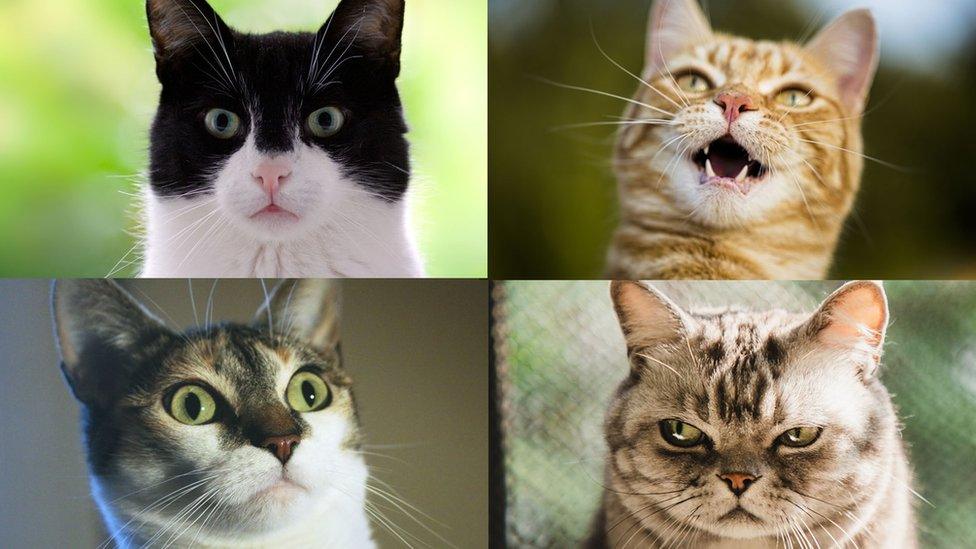Cats have nearly 300 different facial expressions says US study
- Published
- comments

Cats are more expressive than we first thought!
Meowza! Have you ever wondered what your cat's facial expression means? Well, you might soon be able to find out.
A new study by researchers at University of California, Los Angeles (UCLA) has been investigating the different types of facial expressions cats use to communicate with each other.
The team recorded 276 unique different facial expressions from the cats they studied - by comparison, chimpanzees have around 357 different facial expressions.
They also found that cats have some expressions in common with humans, and may have picked them up from their 10,000 year history living with us!
How did the researchers find out cats make faces?
Scientist Lauren Scott visited a charity cat caf茅 in California throughout August and June.
During this time the researcher filmed around 194 minutes of cats' facial expressions - specifically those aimed at other cats.
Lauren then analysed the footage with the help of Brittany Florkiewicz - an evolutionary psychologist - someone who studies emotions and behaviours of certain animal species.
What did they discover about cats' facial expressions?
They discovered 276 different facial expressions in the cats they'd filmed.
Each of the cat's expressions was made up of a mix of four out of 26 unique facial movements - things like open mouths, wide or small pupils, blinks, nose licks, whisker movements, and ear positions.
By comparison, humans have around 44 unique facial movements, and dogs have 27, but the total number of expressions isn't known.
Of the recorded facial expressions, around 45% were thought to be friendly, and 37% were more aggressive or angry, with the leftover 18% an unclear mixture of the two.
Some of the cat's friendly facial expressions - where their mouth was drawn back and their jaw opened to form a smile or laugh - were similar to the 'play face' made by people, dogs, monkeys, and other animals.
The researchers don't yet know exactly what the cats were trying to say to each other through these facial expressions, but they hope that their research could help pet owners and animal shelters to care for and understand their relationships with other cats better.
Do you know what your cat or pet is trying to tell you? Are they happy? Sad? In need of a stroke, a snooze or their favourite food?
Let us know your thoughts in the comments
- Published27 October 2022
- Published7 August 2020
